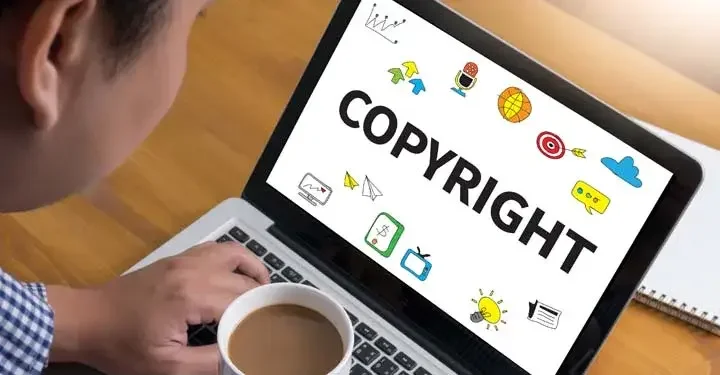Whether you're using a company blog, social media, newsletters, or traditional print marketing, the content that reaches both existing and potential customers plays an invaluable role in every small business's marketing strategy.
Given all these content options, you'll likely want to use someone else's creative work at some point. But before you do, you need first to get permission to avoid potential copyright infringement.

Getting permission to reprint a copyrighted image or article is a fairly commonplace — and simple — task. Just follow these five steps.
1. Determine if you need permission to reuse the work
Not all works are covered by full copyright. While many creative works require permission to reuse them, you might not need consent in the following circumstances:
- Using a work that is in the public domain. Anyone can freely reuse a work that is in the public domain. Generally speaking, a creative work made in 1978 and later that is not work-for-hire is protected by a period of copyright equal to the creator's life plus 70 years. If the work was published before 1978, the full term of copyright is 95 years. For example, as of January 1, 2019, any work created before 1924 is in the public domain.
- Works licensed under the Creative Commons. With a Creative Commons license, creators can provide broader rights to the use of their creative work. Keep in mind that there are a number of different types of Creative Commons licenses, so you should always carefully examine the associated restrictions to ensure you do indeed have permission to reuse the material.
- Usage that falls within the fair use doctrine. Under certain specific circumstances, the fair use doctrine allows copyrighted works without the owner's permission. Fair use might apply in cases of criticism, comment, news reporting, teaching, scholarship, or research. However, the actual guidelines of fair use can be complicated. Where it's used as a defense in a copyright infringement case, the courts look to several factors to determine whether the use of the work falls within the confines of the doctrine.
A good rule of thumb when determining whether you need to request permission is to err on the side of caution. If you're not sure, don't take the chance: get permission to reprint material.
2. Identify and contact the copyright owner
Once you've determined you need copyright permission, you need to figure out who owns the copyright to the material you want to reuse.
The first place to check is the copyright notice attached to the material, but you should keep in mind that copyright might have been transferred to another entity after the date of the copyright notice. The U.S. Copyright Office provides some good tips on how to research who owns a copyright.
Once you know who you need to contact, you should send a detailed request to reuse the material. Include specifics such as the exact material you want to use, how you'll be reusing it, who your audience is, and if the material is used with a product, you're selling.
3. Negotiate terms with the copyright owner
After you've sent your request, the copyright owner will likely reply with specific details about the rights they'd be willing to grant, any additional terms and conditions related to your use of the material, and what compensation, if any, they require for these rights. For example, in some cases, payment may not be required, but the copyright owner might require you to credit them in your materials.
4. Obtain a signed copyright permission form
Once you and the copyright owner reach an agreement, send them a copyright permission form that includes all the details of the arrangement you've discussed. As with your request for copyright permission, this form should be comprehensive so that reuse conditions are spelled out.
5. Save the executed form
Just in case the question of use crops up down the road, make sure you save the signed form somewhere safe. There's no sense in getting the permission if you're not going to keep a record of it to protect yourself.
While it may be permissible for you to reuse someone else's work under the terms of fair use, it's always best to first obtain proper permission. Doing so can help protect you from future claims of copyright infringement.

